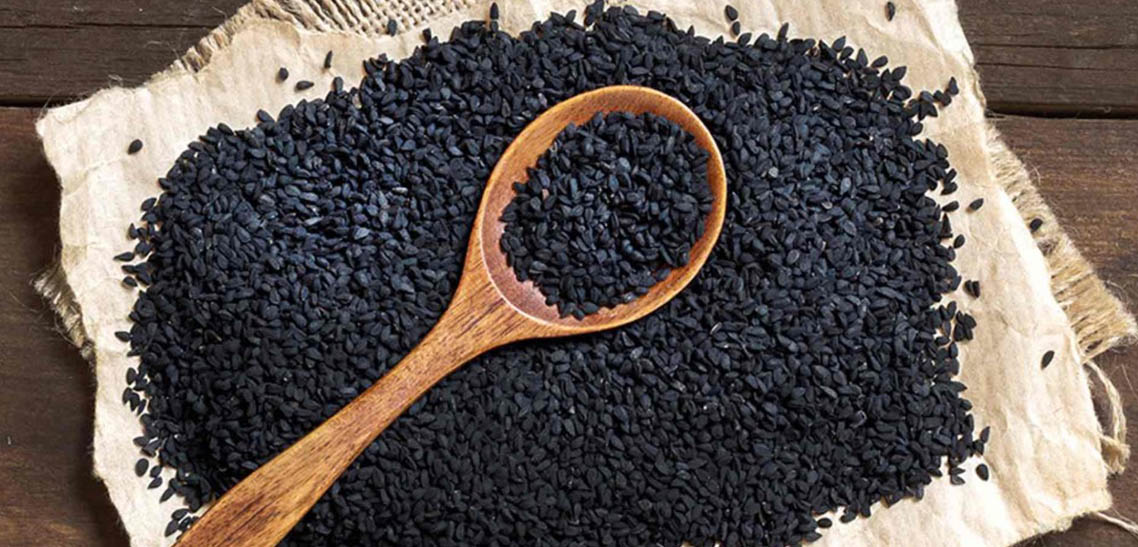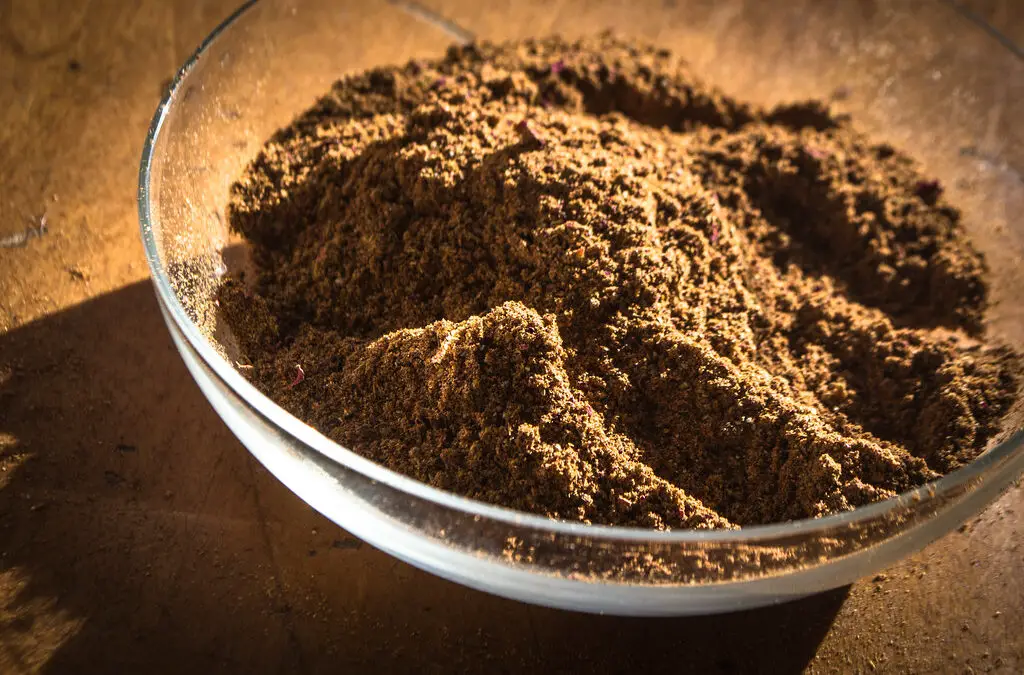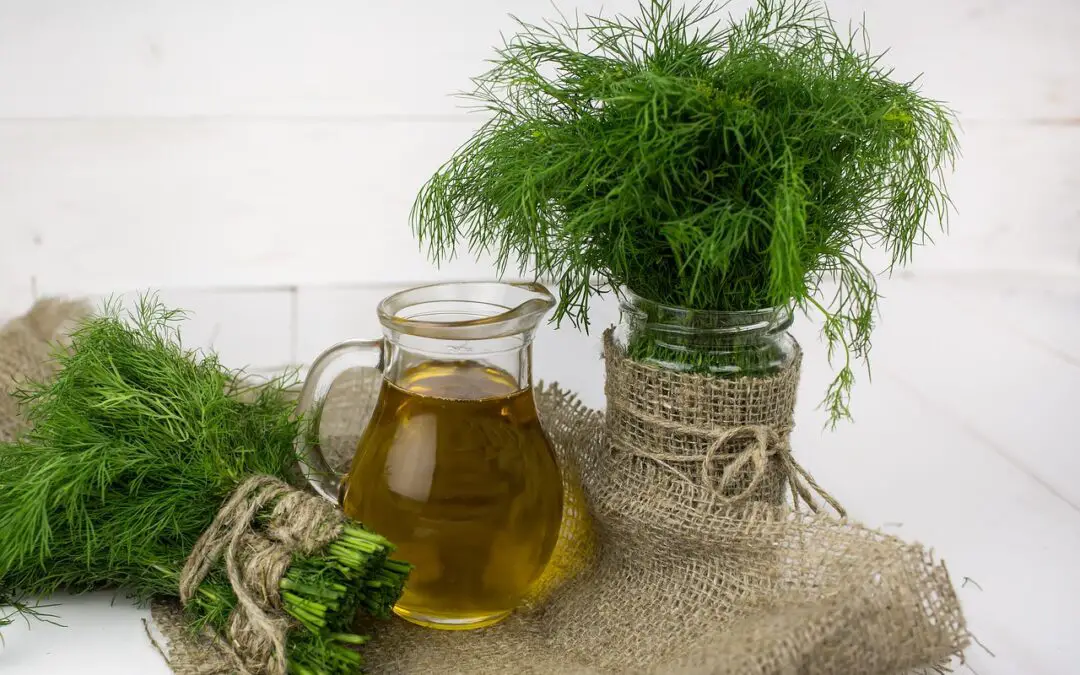Black seed aka Nigella sativa, is a plant that has been used for centuries in Middle Eastern cuisine and traditional medicine. The tiny seeds are commonly used as a spice in dishes such as bread, curries, and pickles. In addition to its culinary uses, black seed has been touted for its potential health benefits.
Many studies have been conducted on the potential health benefits of black seed. It has been shown to have anti-inflammatory, antioxidant, and antimicrobial properties. Some studies suggest that the seed may help lower blood sugar levels, improve cholesterol levels, and even reduce the risk of certain types of cancer. However, more research is needed to fully understand the potential benefits of black seed.
Origins of Black Seed
Black seed has been used for centuries in Middle Eastern cuisine. Originating from the Middle East and North Africa, it is a tiny seed derived from the Nigella Sativa plant. The seeds have a slightly bitter taste and a pungent aroma, which makes them a popular spice in many Middle Eastern dishes.
The use of the seed can be traced back to ancient Egyptian times when it was used for medicinal purposes. It was also mentioned in the Bible and the Quran, where it was referred to as a cure for many ailments. It was also used by the ancient Greeks and Romans, who believed that it had healing properties.
Today, it is still widely used in Middle Eastern cuisine, particularly in dishes from Egypt, Iran, and Saudi Arabia. It is often used to flavor bread, pastries, and stews. In addition to its culinary uses, this seed is also used for its medicinal properties. It is believed to have anti-inflammatory, antioxidant, and antimicrobial properties. It’s used to treat a variety of ailments including asthma, diabetes, and high blood pressure.
Overall, it is a versatile ingredient that has been used for centuries in Middle Eastern cuisine and medicine. Its unique flavor and medicinal properties make it a valuable addition to any kitchen.
Nutritional Composition of Black Seed
Vitamins and Minerals
Black seed is a rich source of vitamins and minerals. It contains high levels of vitamins B1, B2, and B3, which are essential for the proper functioning of the nervous system, as well as for the metabolism of carbohydrates, proteins, and fats. It also contains significant amounts of calcium, iron, and potassium, which are important for maintaining healthy bones, blood, and muscles.
Essential Oils
It also contains essential oils, which are responsible for its distinct aroma and flavor. These oils have been found to have antibacterial, antifungal, and anti-inflammatory properties. They also contain antioxidants that help to protect the body against damage from free radicals.
Phytochemicals
The seed is rich in phytochemicals, which are natural compounds found in plants that have health-promoting properties. These include thymoquinone, which has been found to have anti-cancer properties, and nigellone, which has been found to have anti-inflammatory properties. Other phytochemicals found in the seed include carotene, which is important for maintaining healthy eyesight, and phytosterols, which are important for maintaining healthy cholesterol levels.
Overall, this seed is a nutritious and flavorful ingredient that is commonly used in Middle Eastern cuisine. Its high vitamin and mineral content, essential oils, and phytochemicals make it a valuable addition to any diet.
Health Benefits of Black Seed
Immune System Boost
Black seed has been used for centuries in Middle Eastern cuisine and traditional medicine. It is believed to have numerous health benefits, including boosting the immune system. It contains thymoquinone, which has been shown to have antibacterial, antifungal, and antiviral properties. These properties help to strengthen the immune system and protect the body against infections and diseases.
Anti-Inflammatory Effects
In addition to boosting the immune system, it also has anti-inflammatory effects. Inflammation is the body’s natural response to injury or infection, but chronic inflammation can lead to a variety of health problems, including heart disease, diabetes, and cancer. This seed contains compounds that help to reduce inflammation in the body, which can help to prevent these health problems.
Digestive Health
Black seed is also believed to have digestive health benefits. It has been used to treat digestive problems such as bloating, gas, and diarrhea. The seed contains compounds that help to reduce inflammation in the digestive tract, which can help to alleviate these symptoms. It also has antimicrobial properties, which can help to kill harmful bacteria in the gut.
Overall, it is a versatile ingredient that has numerous health benefits. It can be used in a variety of Middle Eastern dishes to add flavor and nutrition. However, it is important to note that while this seed has many potential health benefits, more research is needed to fully understand its effects on the body.
Usage and Dosage
Black seed is a versatile spice that can be used in both culinary and medicinal applications. When it comes to dosage, it’s important to keep in mind that it is a potent ingredient, and should be used in moderation. Here are some guidelines for using it in your cooking and for medicinal purposes.
Culinary Uses
Black seed has a long history of use in Middle Eastern cuisine, where it’s often used to flavor breads, pastries, and other baked goods. It has a slightly bitter, nutty flavor that pairs well with savory dishes and can be used to add depth and complexity to stews, soups, and curries.
When using this seed in your cooking, it’s important to keep in mind that a little goes a long way. A general rule of thumb is to use no more than 1/2 to 1 teaspoon of black seed per serving. You can also experiment with using black seed in combination with other spices, such as cumin, coriander, and turmeric, to create complex and flavorful dishes.
Medicinal Uses
Black seed has been used for centuries in traditional medicine to treat a variety of ailments, including respiratory issues, digestive problems, and skin conditions. It’s also believed to have anti-inflammatory and immune-boosting properties.
When using black seed for medicinal purposes, it’s important to consult with a healthcare professional to determine the appropriate dosage and method of administration. Black seed can be taken in a variety of forms, including capsules, oil, and tea. Dosages can range from 500 mg to 2,000 mg per day, depending on the condition being treated.
Overall, black seed is a powerful ingredient that can be used in a variety of ways to enhance both the flavor and health benefits of your meals. By following these guidelines for usage and dosage, you can incorporate black seed into your cooking and wellness routine with confidence.
Potential Side Effects
While black seed is generally considered safe for consumption, some individuals may experience side effects. It is important to note that these side effects are rare and usually mild.
One potential side effect of consuming black seed is an upset stomach. This may manifest as nausea, vomiting, or diarrhea. These symptoms can usually be managed by reducing the dosage of black seed or taking it with food.
Another potential side effect is an allergic reaction. Some individuals may be allergic to black seeds, which can cause symptoms such as itching, hives, or difficulty breathing. If an allergic reaction is suspected, it is important to seek medical attention immediately.
In rare cases, black seeds may interact with certain medications. Individuals who are taking medications should consult with their healthcare provider before taking black seed to avoid any potential interactions.
It is also important to note that pregnant or breastfeeding women should avoid consuming black seed as its effects on fetal development and lactation are not yet fully understood.
Overall, while the black seed is generally safe for consumption, individuals should be aware of the potential side effects and consult with their healthcare provider before taking it.
Research and Studies
Black seed has been the subject of numerous studies over the years, exploring its potential health benefits. Here are some of the key findings:
- Antioxidant properties: Black seed has been found to have potent antioxidant properties, which may help protect against cellular damage caused by free radicals. This is important because free radicals have been linked to a range of health problems, including cancer and heart disease.
- Anti-inflammatory effects: Black seed has also been found to have anti-inflammatory effects, which may help reduce the risk of chronic diseases such as arthritis, diabetes, and heart disease.
- Immune system support: Black seed has been shown to support the immune system, helping to fight off infections and diseases. This is likely due to its high concentration of thymoquinone, a compound with strong anti-inflammatory and antioxidant properties.
- Cancer prevention: Some studies have suggested that black seed may have anti-cancer properties, particularly in relation to breast and colon cancer. However, more research is needed to confirm these findings.
- Blood sugar regulation: Black seed has been found to help regulate blood sugar levels, which may be beneficial for people with diabetes or at risk of developing the condition.
Overall, the research on black seed suggests that it may have a range of potential health benefits. However, more studies are needed to fully understand its effects and how best to incorporate it into a healthy diet.
Conclusion
Black seed is a versatile ingredient that has been used in Middle Eastern cuisine for centuries. It has a unique flavor that can add depth to a variety of dishes, from bread to meat dishes. In addition to its culinary uses, it has also been traditionally used for medicinal purposes.
While there are many claims about the health benefits of black seed, it is important to note that more research is needed to fully understand its effects on the body. That being said, it does contain a variety of nutrients and compounds that may have potential health benefits.
Overall, the seed is a valuable ingredient to have in your pantry if you enjoy Middle Eastern cuisine. Its distinctive flavor and potential health benefits make it a worthwhile addition to many dishes. Whether you are using it to season bread or to add flavor to a meat dish, black seed is a versatile ingredient that is well worth exploring.




